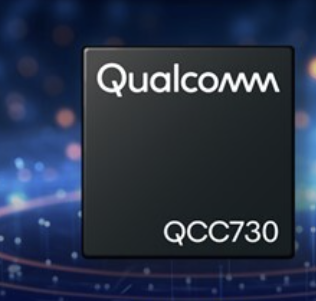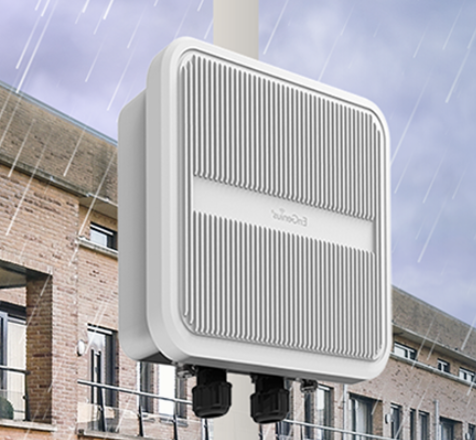
By Claus Hetting, Wi-Fi NOW CEO & Chairman
Boingo fires up world’s first public Wi-Fi 7 network at @CES in Las Vegas
Service provider Boingo – a major provider of public Wi-Fi services – has a history of being the first to launch live public Wi-Fi networks using the latest Wi-Fi standard and as it turns out, Wi-Fi 7 is no exception. Last week on the eve of CES the company announced that public Wi-Fi 7 services are available at the Las Vegas Monorail Boingo Station (Las Vegas Convention Center) and will be on display during CES at the Boingo Innovation Center (read the full announcement here).
Boingo says “Wi-Fi 7 doubles network bandwidth for rock-solid reliability and quadruples the speed of Wi-Fi 6 with peak rates exceeding 40 Gbps. Wi-Fi 7 also enhances energy efficiency, lowering overall power usage, and features enhanced WPA3 security protocols, offering robust authentication and encryption tools.” The company says RUCKUS R770 APs are used to deliver the service.
More Wi-Fi HaLow devices announced including world’s first Wi-Fi 6/HaLow AP
Wi-Fi HaLow continues to be incorporated into more and more IoT devices and during CES, Wi-Fi HaLow chipset leader Morse Micro issued a number of announcements substantiating the surge in growth for this new segment. Perhaps the most impressive new device is a multi-protocol IoT AP from Edgecore dubbed EA112, the world’s first Wi-Fi 6 device also to incorporate Wi-Fi HaLow technology.
The new AP uses LTE for backhaul and supports pretty much every IoT standard under the sun including Wi-Fi 6, Wi-Fi HaLow, BLE, Zigbee, and Thread – as well as the Matter application protocol. The Wi-Fi HaLow capabilities for the Edgecore device are powered by Morse Micro’s Wi-Fi HaLow chip. Other announcements from Morse Micro include a new Wi-Fi HaLow module from partner and module provider Quectel and a new partnership with Australia-based Zetifi aimed at bringing long-range IoT connectivity to farms and remote rural areas. For more read here.
RUCKUS APs selected for Wi-Fi Alliance’s Wi-Fi 7 certification testbed
CommScope has been selected as a platform provider for the Wi-Fi Alliance’s Wi-Fi 7 interoperability testbed, the company said in a press release last week. CommScope’s RUCKUS Wi-Fi 7 platform is not one of the industry’s largest AP providers so this is a significant achievement for CommScope.
To our understanding it is somewhat unusual that AP vendors (as opposed to chipset providers) are selected to provide an interoperability reference platform for new Wi-Fi standards, which also makes this achievement stand out. It also ensures that Wi-Fi 7 certified end-user devices – phones, laptops, and more – will have been tested for successful interoperability against RUCKUS Wi-Fi 7 APs.
Plenty of Wi-Fi 7 laptops launched at CES & some new APs, routers
The Verge’s poignant headline from CES reads “Wi-Fi 7 quietly took off while everyone was looking at AI” – and they’re right. Intel has of course already launched Wi-Fi 7 connectivity for their processor platforms and the result was plenty of new Wi-Fi 7 capable laptops from the likes of Lenovo, MSI, Razer, and others.
Be sure to have a look at The Verge’s story for links to many of the new Wi-Fi 7-capable laptops launched at CES (although not all of them are available immediately). The introduction of Wi-Fi 7-capable PCs is enormously important to the Wi-Fi industry since connected PCs drive a lot of early market adoption for new Wi-Fi standards.
Ubiquiti launched their first Wi-Fi 7 AP in the form of the ceiling-mounted U7 Pro, which is part of the company’s new ‘UniFi 7’ enterprise networking system, described by Ubiquiti as “a massively scalable Wi-Fi 7 solution capable of delivering wired-like user experiences.” ASUS launched a couple new Wi-Fi 7-capable routers at CES, specifically their new family of ZenWiFi mesh systems BQ16 and BQ16 Pro. These are mainstream whole-home Wi-Fi 7 mesh mesh routers in contrast to ASUS’ ROG-brand gaming routers for which the company has become famous over the past number of years.
For some, CES may have had fewer Wi-Fi 7 router and AP announcement than expected although this is simply because many retail Wi-Fi network vendors – including NETGEAR, Linksys, TP-Link, and others – already announced their first Wi-Fi 7 products last year.
/Claus.









